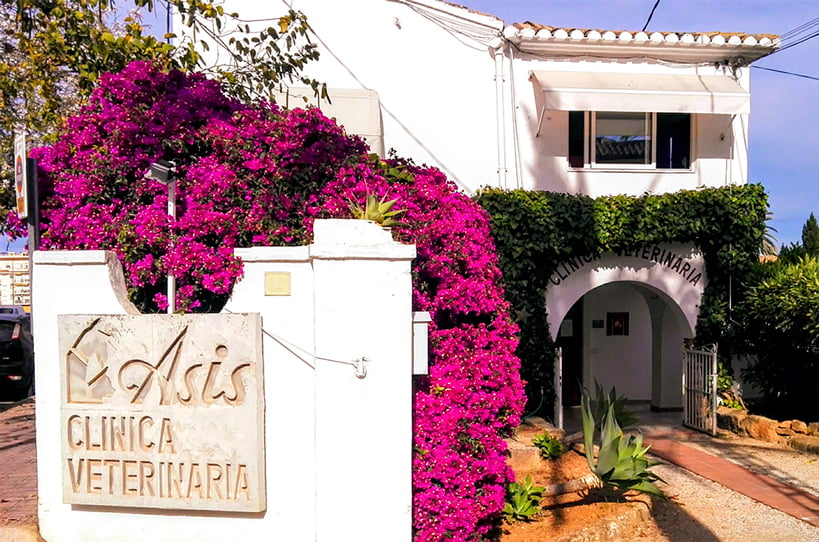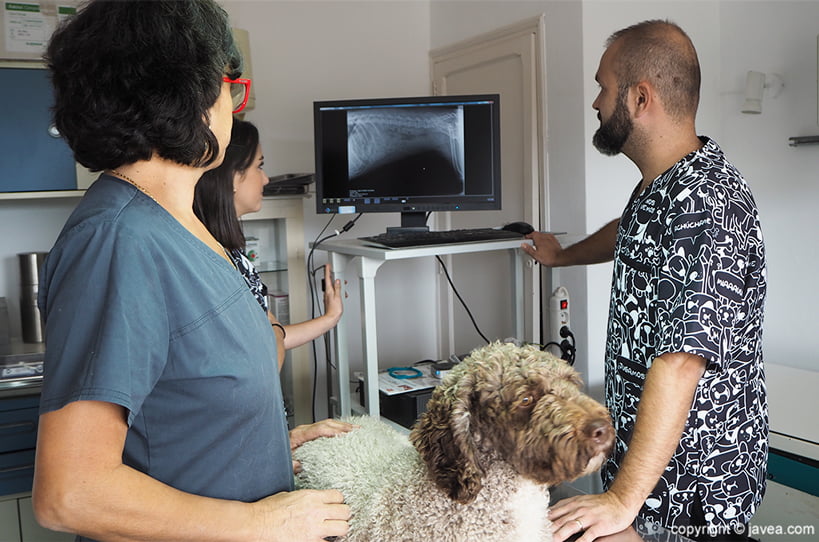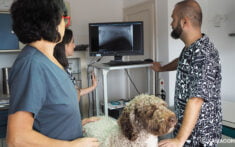Now that the mosquito season begins, it is time to start applying one or more of the preventive methods available to our animal. Thus, Veterinary Clinic ASIS Vets Launches the campaign for prevention and early detection of Leishmaniosis and explains everything we need to know about this disease.
Leishmaniasis is a serious parasitic disease that is transmitted by the bite of a mosquito. It is an endemic infection in the Mediterranean area, with high prevalences that can reach up to 70% in dogs in our area. It mainly affects the dog, but it can also affect people and other animals, wild and domestic. The main species responsible for canine leishmaniasis in the Mediterranean area is Leishmania infantum, a parasite that is transmitted by the bite of mosquitoes of the genus Phlebotomus.
Transfer
The transmission is mainly caused by the bite of the mosquito, not by contact with an infected dog. Mosquitoes ingest leishmanias by sucking blood from an infected animal and when they bite again a new dog injects them with saliva into the skin. They are a very small mosquito type, with a maximum length of about 3 mm, capable of traversing conventional mosquito nets. Only mosquito females bite and do it especially during twilight and dusk. The activity of mosquitoes is more important in times and / or warmer areas, such as ours.
Effects
As they explain from the veterinary clinic, they will depend on the immune system of the affected animal and the type of immune response that triggers: "It can vary from a subclinical or asymptomatic infection to a severe clinical syndrome that can be fatal for the animal." Leishmaniasis is a systemic and chronic disease that can cause:
- Weightloss
- Apxicotete reduction
- Skin lesions (wounds, alopecia, chronic ulcers, nodules, etc)
- Enlargement of lymph nodes and spleen
- Higher water intake and more urine, diarrhea, vomiting, bleeding from the nose or stool, eye injuries, lameness, etc.
- The abnormal and exaggerated production of antibodies produces immunological alterations that lead to conditions of vasculitis, polyarthritis, skin ulcers, uveitis and glomerulonephritis, among others.
In many cases, animals with leishmaniasis suffer other concomitant co-infections such as heartworm disease (heartworm disease) and tick-borne infections, so that clinical signs may be aggravated or may be due to other infectious agents.
Can it affect people?
Although leishmaniasis mostly affects dogs, it can also affect people but there are few cases since our immune system is able to defeat the parasite. However, as commented by Asis Vets, immunocompromised people (cancer patients, organ transplants and immunosuppressive therapies, HIV ...) are more likely to get the disease.
Therefore, prevention is important to control the pathology in dogs and try to reduce the risk of infection, with the fight against vectors, in turn to safeguard the health of people.
Prevention
From Asis Vets comment: "Now that the mosquito season begins, it is time to start applying one or more of the preventive methods we have to our animal. There are several repellent products for Phlebotomo (pipettes and collars) that are easy to apply by the owners, who can be used individually or in combination, and who can reduce the likelihood of the mosquito biting them. "
There is also a new vaccine on the market that, although it does not prevent our animal from acquiring leishmaniasis, it does significantly reduce the presence of clinical signs, inducing a milder and more favorable evolution of the disease. Its application is very safe and the only condition that is required is to test our animal before vaccinating it.
We live in an endemic area, and although every day there are more people aware of the welfare of our animals, there are still many animals that spend their days in poor conditions, without veterinary controls and without any type of preventive treatment.
To all this, we add that there is a wide variety of wildlife that lives in our mountains. The total eradication of Leishmaniosis is practically impossible, so from Veterinary Clinic ASIS Vets explain the importance of making owners aware that it is a truly serious disease for our dogs and that they should start trying to prevent it before it is necessary to treat it.
Make your appointment on the phone 96 579 19 69 and visit ASIS Vets Veterinary Clinic in Avinguda del Trenc d'Alba, 14.
Contact ASIS Vets Veterinary Clinic
| Plaça de Joanot Martorell, 5, 03730 Jávea View in Google Maps | |
| 96 579 19 69 | |
| 608 46 01 51 | |
| From Monday to Friday from 09: 00h to 17: 00h | |
| pages | |
| asis_vets | |
| asis.javea@gmail.com | |
| Animals |








